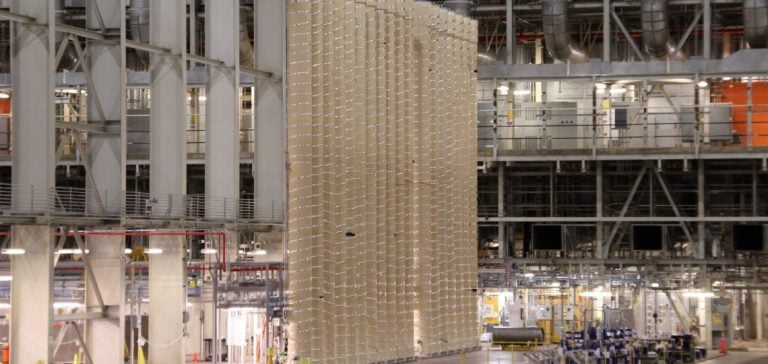Centrus urges the U.S. government to direct $3.4 billion in federal investment toward domestic nuclear technology, in order to strengthen U.S. energy independence from foreign dependencies.
At a Capitol Hill briefing, Centrus insists that federal funds allocated to nuclear fuel production should specifically support U.S. uranium enrichment technology.
The company stresses that these technologies must be manufactured in the USA by American workers.
This call comes as the country seeks to reduce its dependence on foreign nuclear fuels, including from Russia.
Centrus warns of a new addiction
Amir Vexler, President and CEO of Centrus, argues that now is a crucial time to restore the U.S. supply chain for enriched uranium.
He believes it is essential to avoid replacing dependence on Russia with dependence on other countries such as China or European nations.
In his view, investing in domestic technology is a matter of energy and strategic security for the United States.
At the briefing, Vexler is joined by executives from 14 U.S. companies in 13 states.
These companies, part of the Centrus supply chain, would be involved if the federal government supported the deployment of the company’s American Centrifuge technology.
This technology is manufactured in Oak Ridge, Tennessee, and operated in Piketon, Ohio.
Expansion of domestic production
Under contract to the Department of Energy, Centrus has deployed a cascade of sixteen centrifuges at the American Centrifuge Plant in Piketon, Ohio.
The company produces an advanced fuel called HALEU (High-Assay, Low-Enriched Uranium), crucial for new-generation reactors.
Centrus plans to expand the plant’s capacity with thousands of additional centrifuges to produce low-enriched uranium on a large scale for current reactors and HALEU for future reactors.
To make this expansion a reality, Centrus stresses the need for a strong public-private partnership.
This would involve significant federal investment, private capital and purchasing agreements with customers.
The company is currently participating in tenders issued by the Department of Energy, backed by more than $3.4 billion allocated by Congress.
Geopolitical issues and national security
The need to develop domestic nuclear fuel production is accentuated by current geopolitical tensions.
Dependence on imports, particularly from Russia, presents strategic risks for the United States.
By investing in domestic technologies, the country could strengthen its energy autonomy and secure its nuclear fuel supply.
Centrus warns that without swift action, the United States could become dependent on foreign technologies for its nuclear production.
This would have both economic and national security implications.
The company stresses the strategic importance of investing in American technology to maintain the country’s leadership in the nuclear sector.
Opportunity for the US nuclear industry
By mobilizing an all-American supply chain, Centrus offers a solution that supports the local economy and ensures the sustainability of the domestic nuclear sector.
This approach could position the United States as a leader in advanced nuclear technologies, while reducing the risks associated with dependence on foreign suppliers.
The planned federal investments offer a unique opportunity to revitalize the US nuclear industry.
By directing these funds towards domestic technologies, the government could stimulate innovation, create jobs and strengthen the country’s energy security.
Centrus hopes that policymakers will seize this opportunity to support an industry that is key to America’s energy future.
The debate over the direction of federal investment in nuclear power raises vital questions about energy independence and national security.
By favoring American technologies, the United States can reduce its dependence on foreign suppliers and strengthen its position on the international civil nuclear scene.
The decisions taken today will have a lasting impact on the country’s ability to control its energy future.






















